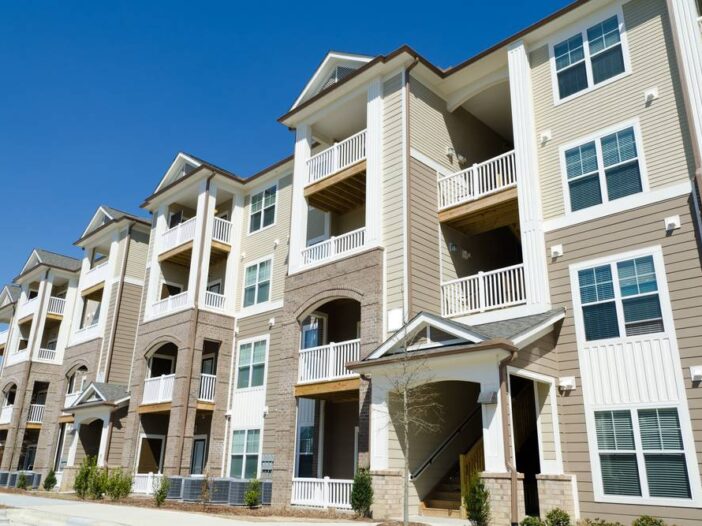Developer and land baron Harry Triguboff is one of Australia’s richest men.
Triguboff knows all the secrets when it comes to making significant wealth from the real estate cycle.
Especially when it comes to minimising tax and sitting on vast tracts of undeveloped land for gain.
We can learn a thing or two from him.
Comments made at a lunch held by the American Chamber of Commerce in 2014 sum up this strategy.
One that enables Harry (and others like him) to pay ‘very little tax’.
‘“I keep a lot of my properties.
‘“And if you keep them and there’s capital gain it’s beautiful,” he says.
‘“You don’t pay tax. I don’t lease them so I don’t pay tax on the rent, but I get depreciation.”
‘He paid tax on apartment sales but that’s where the land banking came in.
‘“You have to buy lots of empty land,” he said.
‘“You keep the land and it brings you no income, so you claim it against your tax.”’
Triguboff currently has enough zoned land to build 10,000 apartments. But says he can’t develop anything because of the ‘bureaucratic’ planning process in NSW.
So, Harry wants to pay NO land tax:
‘“I do not understand why I should pay land tax for holding land which the NSW department of planning refuses to approve.”
‘Mr Triguboff questioned why land tax was applied to the unimproved land value based on the highest and best use, saying it became irrelevant “if you cannot get the planning approvals to realise the highest and best use.”’
I’m no fan of the planning system.
In Victoria, to develop low-density townhouses alone, it often takes three times longer to gain approval than constructing a house.
Getting approval for a high-rise takes years.
And proposed planning changes in NSW affecting both the design and size of apartment buildings is creating uncertainty.
Still, Harry has amassed a fortune of more than $14 billion.
He owns a portfolio of more than 4,000 apartments that he rents out.
Land taxes haven’t hurt his bottom line too much now, have they?
As I said, there’s a lot to learn from Harry.
He plays the game of Monopoly well.
Including using his influence to lobby for changes to government policy to juice the market for even more.
The only fear Harry and other large developers like him should have, is whether they can sell apartments to individual investors once developed.
It’s one of the reasons Harry always lobbies for population growth and foreign buyer incentives when the market is in a slump.
Apartments is the one sector of the residential market that is not booming. Prices are going backwards.
Here’s an example for you — an investor approached me recently, wanting advice on the sale of a very nice two-bedroom, two-bathroom apartment in the heart of Footscray — 5km west of Melbourne’s central business district.
(An area where land values are booming, by the way.)
It was purchased at the bottom of the market downturn in 2018 (January) for $472,500.
Yet sold a couple of weeks ago — in the 2021 mega boom — for $460,000.
The investor did well to get out now before things get worse.
The problem here is that vacancy rates are exploding.
There are a lot of investors attempting to offload this type of investment.
In Melbourne’s Docklands, the vacancy rates hit a high of 18.8% in October 2020.
That’s unprecedented.
Vacancy rates for apartments are not much better now. The sector is oversupplied.
Good news for renters — not good for the individual owners.
Something I’ve warned investors about for years.
Don’t buy a small one–two-bedroom apartment if you want the price to go up and not down!
There are only a very select few that can buck the trend.
Still — it hasn’t stopped governments encouraging large-scale, high-rise construction.
And it hasn’t stopped the RBA claiming we have an apartment shortage due to planning controls.
It also hasn’t stopped the mainstream media claiming that buyers are ‘flocking’ into the apartment market…
‘First-home buyers have been snapping up apartments in buildings normally filled with international students as opportunities for bargain buys open up.’
Fairfax Domain
(Having been misquoted in Domain more times than I can count — I can confirm from experience and reports on the ground that the above statement is BS.)
There is a vested interest here to keep building. And the one thing it will do is feed directly into higher and higher commercial land values.
High-rise developments have been fast-tracked in most of the major capitals as part of the COVID recovery plan.
One of them will soon be the tallest building in Australia.
I’m talking about the ‘Green Spine’ being developed in Melbourne.
It is on track to complete in 2026.
That means there are going to be plentiful opportunities for wealth creation in the interim for those who know how to play the game like Harry.
They won’t be the ‘mum/dad’ investors that purchase off-plan apartments sold by the spruikers.
But those that gain exposure to the rising land values underneath them.
Whether through direct investment in sites zoned for development or in the REITs (real estate investment trusts) and stocks that back them.
Best wishes,
 |
Catherine Cashmore,
For The Daily Reckoning Australia
PS: Australian real estate expert, Catherine Cashmore, reveals why she thinks we could see the biggest property boom of our lifetimes — over the next five years. Click here to learn more.

